Filter by
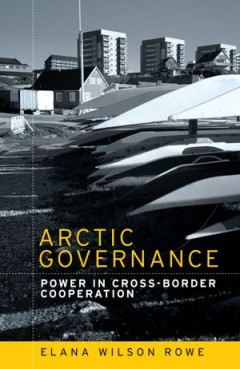
Arctic governance
This book seeks to pose and explore a question that sheds light on the contested but largely cooperative nature of Arctic governance in the post-Cold War period: how does power matter – and how has it mattered – in shaping cross-border cooperation and diplomacy in the Arctic? Each chapter functions as a window through which power relations in the Arctic are explored. Issues include how repr…
- Edition
- -
- ISBN/ISSN
- 9781526131645
- Collation
- -
- Series Title
- -
- Call Number
- -
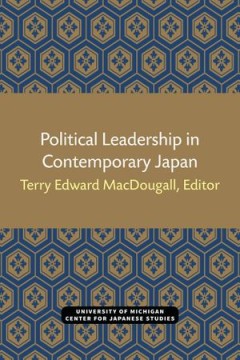
Political Leadership in Contemporary Japan
Those who do not read Japanese seldom have access to analytic studies of the fascinating and surprisingly diverse world of contemporary Japanese political leadership. This volume constitutes a step toward bringing to the English reader some sense of the norms, beliefs, styles, and modes of exercising power of Japanese political leaders and the organizational and political contexts which are cha…
- Edition
- -
- ISBN/ISSN
- 9780472901982
- Collation
- -
- Series Title
- -
- Call Number
- 320 POL p

Antisemitism and the left On the return of the Jewish question
Universalism has acted as a stimulus for Jewish emancipation, that is, for civil, political and social inclusion. It has also been a source of anti-Jewish prejudice up to and beyond the classic antisemitism of the modern period. While the experience of Jews is by no means unique in this respect, one of the peculiarities of the 'anti-Judaic' tradition has been to represent Jews in some important…
- Edition
- -
- ISBN/ISSN
- 9781526104960
- Collation
- -
- Series Title
- -
- Call Number
- -
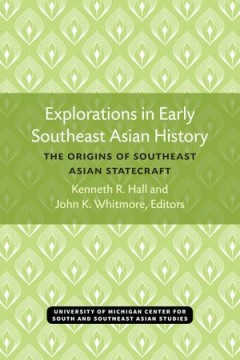
Explorations in Early Southeast Asian History: The Origins of Southeast Asian…
While following the probes of foreign individuals into various obscure parts of Southeast Asia over the centuries is a diverting and entertaining pastime, the purpose of this volume is to investigate this past with the mind, to question and postulate upon the historical patterns that have developed from earlier study of the area, and to bring concepts from other areas and disciplines to bear on…
- Edition
- -
- ISBN/ISSN
- 9780472901951
- Collation
- -
- Series Title
- -
- Call Number
- 320 EXP e

Mobilizing Global Knowledge Refugee Research in an Age of Displacement
In 2018, the United Nations High Commission for Refugees documented a record high 71.4 million displaced people around the world. As states struggle with the costs of providing protection to so many people and popular conceptions of refugees have become increasingly politicized and sensationalized, researchers have come together to form regional and global networks dedicated to working with dis…
- Edition
- -
- ISBN/ISSN
- 9781773850863
- Collation
- -
- Series Title
- -
- Call Number
- -
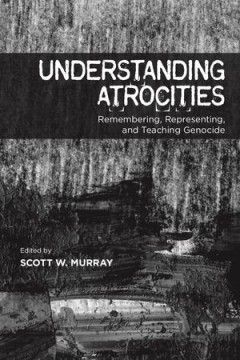
Understanding Atrocities Remembering, Representing, and Teaching Genocide
Understanding Atrocities is a wide-ranging collection of essays bridging scholarly and community-based efforts to understand and respond to the global, transhistorical problem of genocide. The essays in this volume investigate how evolving, contemporary views on mass atrocity frame and complicate the possibilities for the understanding and prevention of genocide. The contributors ask, among oth…
- Edition
- -
- ISBN/ISSN
- 9781552388860
- Collation
- -
- Series Title
- -
- Call Number
- -
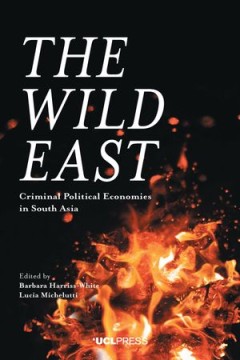
The Wild East
The Wild East bridges political economy and anthropology to examine a variety of il/legal economic sectors and businesses such as red sanders, coal, fire, oil, sand, air spectrum, land, water, real estate, procurement and industrial labour. The 11 case studies, based across India, Pakistan and Bangladesh, explore how state regulative law is often ignored and/or selectively manipulated. The emer…
- Edition
- -
- ISBN/ISSN
- 9781787353237
- Collation
- -
- Series Title
- -
- Call Number
- -

Governing Gaza : Bureaucracy, Authority, and the Work of Rule, 1917–1967
Marred by political tumult and violent conflict since the early twentieth century, Gaza has been subject to a multiplicity of rulers. Still not part of a sovereign state, it would seem too exceptional to be a revealing site for a study of government. Ilana Feldman proves otherwise. She demonstrates that a focus on the Gaza Strip uncovers a great deal about how government actually works, not onl…
- Edition
- -
- ISBN/ISSN
- 9781478091394
- Collation
- -
- Series Title
- -
- Call Number
- 320 FEL g
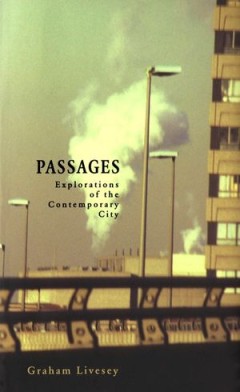
Passages Explorations of the Contemporary City
Informed by the work of writers such as Henri Lefebvre, Paul Ricoeur and Michel de Certeau, this collection of essays examines through multiple lenses eight topics related to the contemporary urban domain. The author employs powerful geographic and literary concepts such as space, narrative, and metaphor to interpret the often-bewildering complexity of the post-modern city. Recalling key aspect…
- Edition
- -
- ISBN/ISSN
- 9781552386750
- Collation
- -
- Series Title
- -
- Call Number
- -
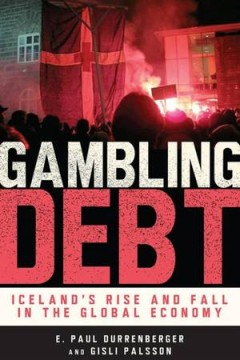
Mobilizing Global Knowledge Refugee Research in an Age of Displacement
In 2018, the United Nations High Commission for Refugees documented a record high 71.4 million displaced people around the world. As states struggle with the costs of providing protection to so many people and popular conceptions of refugees have become increasingly politicized and sensationalized, researchers have come together to form regional and global networks dedicated to working with dis…
- Edition
- -
- ISBN/ISSN
- 9781773850863
- Collation
- -
- Series Title
- -
- Call Number
- -
 Computer Science, Information & General Works
Computer Science, Information & General Works  Philosophy & Psychology
Philosophy & Psychology  Religion
Religion  Social Sciences
Social Sciences  Language
Language  Pure Science
Pure Science  Applied Sciences
Applied Sciences  Art & Recreation
Art & Recreation  Literature
Literature  History & Geography
History & Geography